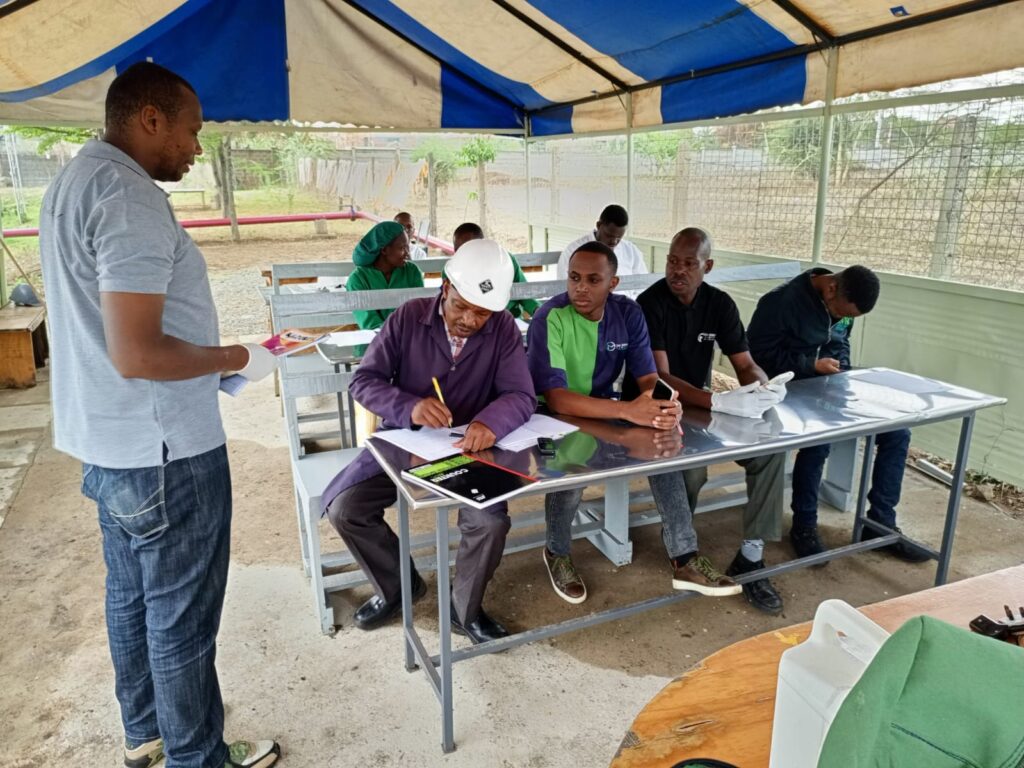Integrated Pest Management courses/training in Nairobi Kenya.
GM offers Integrated pest management (IPM) training in Nairobi, Kenya. In modern agriculture, integrated pest management is crucial. This certificate, which consists of 15 credits (5 three-credit courses).The course work will cost 60,000.00 KHS for two weeks course involving theory and practical’s is intended to assist business man, entrepreneur, farmers and other agricultural service providers in recognizing and evaluating pests in the field. The program focuses on ecologically friendly management techniques based on the ecology and lifespan of pests.
IPM is a term used to describe a pest management strategy that employs all appropriate approaches in a comprehensive approach with the goal of preventing pest populations from rising to undesirable levels or bringing them down to a manageable level.
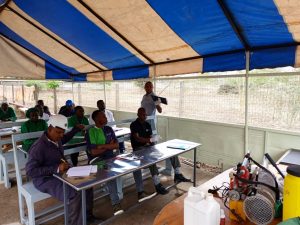
Historically, indigenous wisdom was applied to agriculture; local species were planted according to natural cycles. However, today’s mechanized agriculture sectors and their unrestrained price volatility rely heavily on farmers. The majority of seeds are hybrid or genetically modified, and their use increases reliance on chemical fertilizers since chemical pesticides kill vital soil bacteria. The price of producing food has increased significantly as a result of all of this. Pest resistance and soil quality are deteriorating while farmer dependence grows.
IPM is centered on taking precautions, checking the crop or site to see how many pests are present, estimating the potential for pest damage, and taking the proper steps. Cultural practices, biological control agents, insecticides, pest-resistant plants, mechanical techniques, and physical barriers are just a few of the many possible strategies. These strategies can be combined in IPM to create a strategy that is most appropriate for the given circumstance. It is a thorough strategy that focuses on eradicating causes rather than merely treating symptoms
IPM places a strong emphasis on reducing the use of pesticides as the single and effective method of pest management. IPM can increase farmer income while minimizing environmental harm and the danger of chemical exposure on the farm. Identifying the pests accurately is necessary for pest control.
topics include
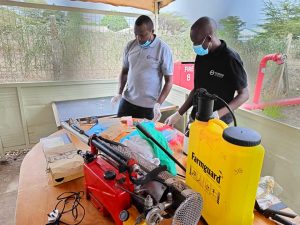 Biology and identification of pests
Biology and identification of pests
Principles of pest control
a description of soils and soil fertility
Field methods for pest control
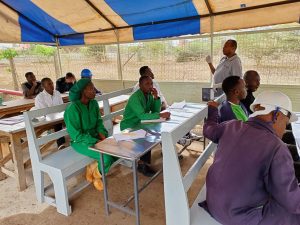 You can become a pest scout in government organizations, pest management firms, or agricultural services firms with the Integrated Pest Management Essentials credential.
You can become a pest scout in government organizations, pest management firms, or agricultural services firms with the Integrated Pest Management Essentials credential.
The Certificate in Integrated Pest Management investigates the significance of controlling several pests, including diseases, weeds, and insects, that harm our natural and agricultural ecosystems. Students will build and construct management plans to avoid and handle a range of pests utilizing physical, mechanical, cultural, biological, and chemical approaches. It will emphasis learning about the ecosystem factors that favor the existence of pests.
This course equips students with the specialized knowledge they need for employment in environmental management. Students will comprehend the social and environmental effects of pests in contemporary society after completing the five courses required for this certificate program. Students should expect instructors and staff at the Faculty of Agriculture to have knowledge in pest management.
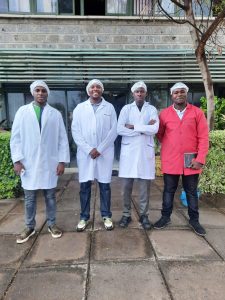 With GM Study you will develop the skills necessary to become a professional Pest Control Technician (Kenya Standards). This course is thorough and will provide learners with a broad understanding of advanced level pest control. It is packed with insider knowledge from the field and experienced instruction. Our carefully prepared modules cover numerous species, the best methods for managing them, as well as all the necessary tools and methods.
With GM Study you will develop the skills necessary to become a professional Pest Control Technician (Kenya Standards). This course is thorough and will provide learners with a broad understanding of advanced level pest control. It is packed with insider knowledge from the field and experienced instruction. Our carefully prepared modules cover numerous species, the best methods for managing them, as well as all the necessary tools and methods.
The benefits of studying with GM are numerous. You receive direct delivery of the course materials, which you can customize to match your needs. Because it was prepared by industry specialists, you can be sure that the material is accurate, current, and simple to grasp.
COURSE OBJECTIVES
After finishing, you’ll be able to:
Recognize the fundamental ideas and components of integrated pest management.
Create programs for extension and teaching on integrated pest and crop management.
Recognize the fundamental elements and overarching ecological factors in IPM.
Learn about organic farming techniques as a means of pest control.
Learn about IPM monitoring and evaluation techniques.
Recognize how IPM affects agriculture.
Describe the advantages of IPM.
Call us today on 0721979781 and make a booking with us today or email us at info@gmfumigators.co.ke

